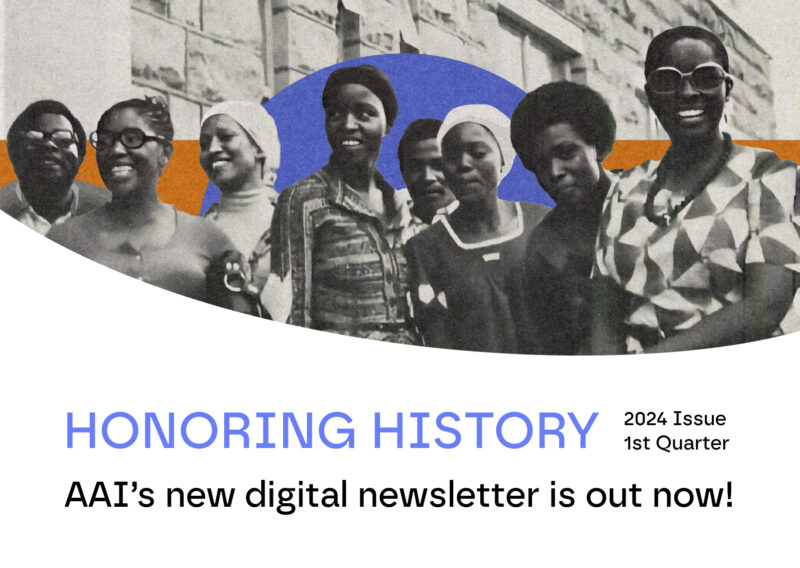Reflections on Black History Month
Dear Friends of AAI,
Witnessing the current all-out assault on Black Studies in the United States it may be tempting to dismiss or minimize the significance of Black History Month to, for instance, follow the lead of a Washington Post columnist who recently bemoaned that it offers “naïve hope.”
But such cynicism is to be resisted as it belies the history and purpose of Black History commemorations and their continuing relevance and potential vitality and impact.
Carter G. Woodson and the thousands of black educators across the United States who founded the Association for the Study of Negro Life and History (ASNLH) in 1915 during the height of Jim Crow segregation and lynching, and launched Black History Week in the aftermath of the Red Summer crisis of 1919, were anything but naïve. Indeed, as Jarvis Givens eloquently reminds us in Fugitive Pedagogy: Carter G. Woodson and the Art of Black Teaching, Woodson rebuffed any attempts by the dominant (white) mainstream educational and philanthropic establishments to control ASNLH or dilute its mission: to counter the erasure and denigration of black life and culture in education and resist white supremacy and domination. In a recent essay, Givens reminds us that:
“Efforts to suppress critical teaching about race and Ethnic Studies all echo the white grievance politics and revanchism of years past. Studying the history of Black teachers can support critical educators today to develop meaningful strategies for confronting such opposition, while drawing inspiration from a worthy tradition. This history provides a legacy for critical educators to situate themselves in and strengthen their vocation — one that challenges the status quo of what it actually means to be a teacher in a world of perpetual crisis.”
We at AAI are inspired by the history of black teachers, Carter G. Woodson included. For AAI, the significance of Black History Month is neither contingent on mainstream corporate marketing nor the standard curricula and instruction offered in U.S. schools. Rather, the month of February, like every other month of the year, is one to continue the difficult and yet endlessly rewarding work of countering the pervasive K-12 educational practice of introducing students to Africa and its worldwide diaspora, if at all, solely through the lens of European domination. We work hand-in-hand with teachers in and outside of schools to ensure that students have the educationally enriching and transformative experience of learning about Africa and its worldwide Diaspora through curricular content that is scholarly and free of bias and misinformation.
Therefore, we encourage others to join us in heeding the call of the Association for the Study of African American Life and History (ASALH)—the enduring successor to the black education institution and network that Woodson and his fellow black teachers created—by adopting Black Resistance! as the Black History Month theme for 2023, and as necessary beyond.
Yours in Partnership,

Kofi Appenteng
President



